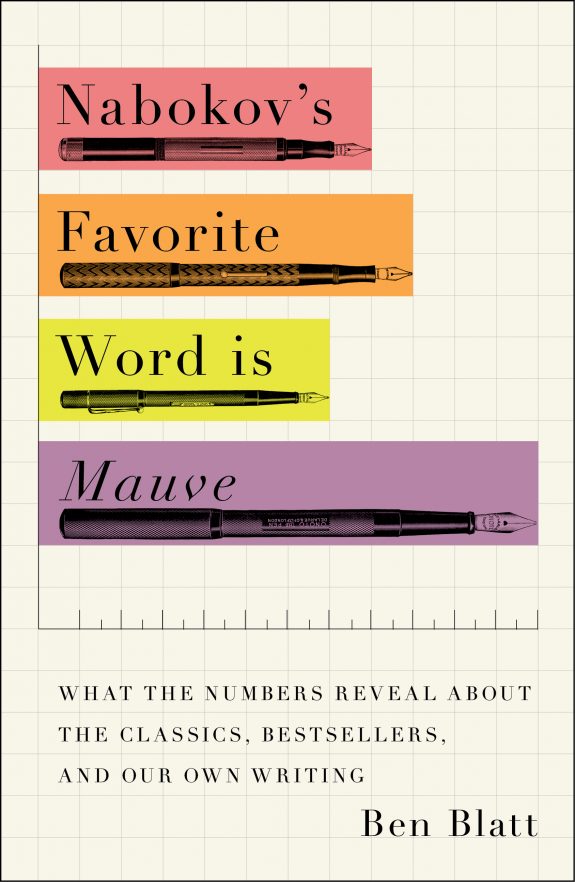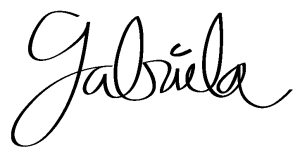Hey there word nerds!
Today I’m delighted to interview journalist and statistician, Ben Blatt, about his new book Nabokov’s Favorite Word Is Mauve.
Ben is a former staff writer for Slate and The Harvard Lampoon who has taken his fun approach to data journalism to topics such as Seinfeld, mapmaking, The Beatles, and Jeopardy! His previous book, co-written with Eric Brewster, is I Don’t Care if We Never Get Back, which follows the duo’s quest to go on the mathematically optimal baseball road trip, traveling 20,000 miles to a game in all thirty ballparks in thirty days without planes. Blatt’s work has also been published in The Wall Street Journal, The Boston Globe, and Deadspin.
In his latest book, Nabokov’s Favorite Word Is Mauve (affiliate link), he offers a playful and informative look at what numbers have to say about our favorite authors and a wide range of books, from bestsellers and classics to guilty pleasures. He sets up a slew of original analytical experiments and uses big data to answer some of our most persistent questions about literature.
In this episode Ben Blatt and I discuss:
- The Adverb Question: Do great writers use more adverbs (or fewer) than their non-great counterparts? Should writers avoid adverbs altogether?
- Do men and women write differently? What does this say about our literary culture? His biggest finding is a sweeping disparity in male and female characters across all genres of writing: women write equally about men and women, but men write overwhelmingly more about men.
- Are books getting “dumber”? Blatt’s findings show that the grade level of #1 bestsellers has fallen by two levels—from 8th grade to 6th—in the past 50 years. Although this might be worrying, it might not necessarily damning—simple can be good at getting a wider audience reading, and the trend doesn’t mean that every book is being written at a lower level.
- What are our favorite writers’ favorite words? Using text analysis and setting up his own original experiment, Blatt develops a lengthy list of our favorite author’s favorite words. Among them: Nabokov’s favorite word is mauve, Jane Austen’s favorite is civility (of course it is), EL James’s is murmurs.
- What makes a great opening sentence? When in doubt, keep it short. Of twenty of the “best opening sentences” in literature, 60% of them are short and 40% are long (when compared to the author’s average sentence).
Plus, Ben Blatt’s #1 tip for writers.
About the Author
Ben Blatt is a former staff writer for Slate and The Harvard Lampoon who has taken his fun approach to data journalism to topics such as Seinfeld, mapmaking, The Beatles, and Jeopardy! His previous book, co-written with Eric Brewster, is I Don’t Care if We Never Get Back, which follows the duo’s quest to go on the mathematically optimal baseball road trip, traveling 20,000 miles to a game in all thirty ballparks in thirty days without planes. Blatt’s work has also been published in The Wall Street Journal, The Boston Globe, and Deadspin. He lives in Los Angeles.
Nabokov’s Favorite Word Is Mauve
 There’s a famous piece of writing advice—offered by Ernest Hemingway, Stephen King, and myriad writers in between—not to use -ly adverbs like “quickly” or “fitfully.” It sounds like solid advice, but can we actually test it? If we were to count all the -ly adverbs these authors used in their careers, do they follow their own advice compared to other celebrated authors? What’s more, do great books in general—the classics and the bestsellers—share this trait?
There’s a famous piece of writing advice—offered by Ernest Hemingway, Stephen King, and myriad writers in between—not to use -ly adverbs like “quickly” or “fitfully.” It sounds like solid advice, but can we actually test it? If we were to count all the -ly adverbs these authors used in their careers, do they follow their own advice compared to other celebrated authors? What’s more, do great books in general—the classics and the bestsellers—share this trait?
In Nabokov’s Favorite Word Is Mauve (affiliate link), statistician and journalist Ben Blatt brings big data to the literary canon, exploring the wealth of fun findings that remain hidden in the works of the world’s greatest writers. He assembles a database of thousands of books and hundreds of millions of words, and starts asking the questions that have intrigued curious word nerds and book lovers for generations: What are our favorite authors’ favorite words? Do men and women write differently? Are bestsellers getting dumber over time? Which bestselling writer uses the most clichés? What makes a great opening sentence? How can we judge a book by its cover? And which writerly advice is worth following or ignoring?
Blatt draws upon existing analysis techniques and invents some of his own. All of his investigations and experiments are original, conducted himself, and no math knowledge is needed to understand the results. Blatt breaks his findings down into lucid, humorous language and clear and compelling visuals. This eye-opening book will provide you with a new appreciation for your favorite authors and a fresh perspective on your own writing, illuminating both the patterns that hold great prose together and the brilliant flourishes that make it unforgettable.
If you decide to check out the book, we hope you’ll do so via this Amazon affiliate link, where if you choose to purchase DIY MFA makes a small commission at no cost to you. As always, thank you for supporting DIY MFA!
Link to Episode 138
(Right-click to download.)
If you liked this episode…
Head over to iTunes, leave a review, and subscribe so you’ll be first to know when new episodes are available. Also, if you know anyone who might enjoy this podcast, please share!
Until next week, keep writing and keep being awesome!








